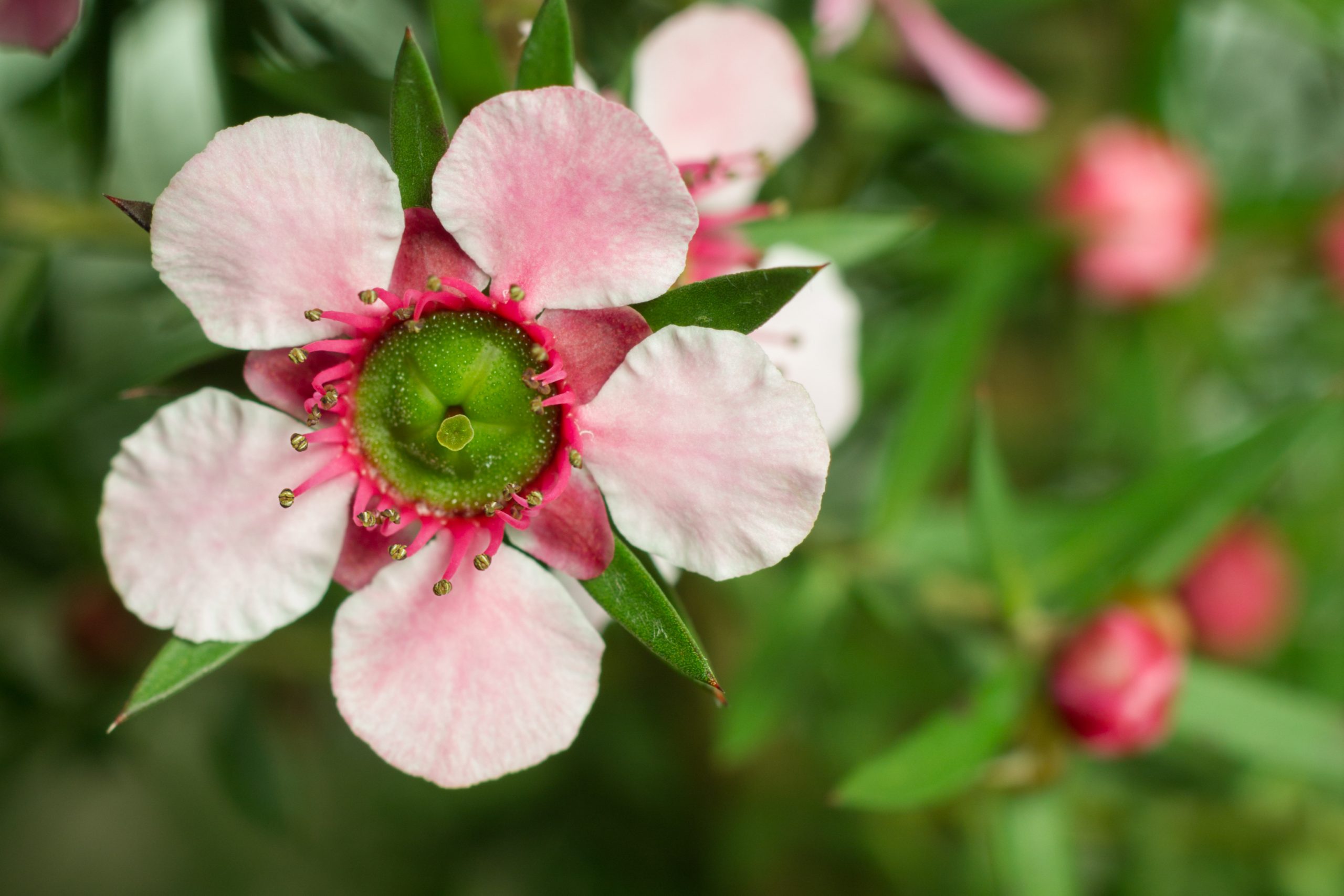The Manuka Flower
April 11, 2015
More Information on Manuka, its Flowers and its Uses
Manuka honey is a much sought after type of honey that is almost exclusively produced in New Zealand. This type of honey is derived from two different yet closely related plants that are both commonly called manuka. Although both plants are capable of producing this honey, the Leptospermum scoparium plant, also known as red tea tree or red manuka, is the most common producer of manuka honey. Both of these trees grow solely in New Zealand, making them and their honey a very popular product.
What Does the Manuka Flower Look Like?
Manuka is naturally found throughout the North, South, and Stewart Islands of New Zealand and grows into a small tree or shrub that can vary in height to a maximum of 8 meters high. The tree is covered in brownish colored bark that sits gently on the tree’s surface and appears in long strips. The Manuka also grows narrow, pointy leaves that are highly perfumed and also grows white, single flowers. There flowers are the main source of manuka honey and generally bloom during the spring and summer.
How is Manuka Used for Soil Conservation?
Manuka is important as a pioneering plant – the growth of this tree is the beginning stage of growing a new, native forest. Manuka provides shelter and shade while also protecting other plants from the wind, making a great nursery environment for younger, smaller plants to grow in. Although Manuka helps these plants grow, once it is overtaken and shaded by other plants, it will die. Manuka can grow on colder, wetter, and more acidic soil than other plants, helping to rejuvenate eroded slopes.
What is Manuka Used for, Other Than Producing Honey?
While the flowers that bloom on Manuka are used to create honey, there are many other uses for the Manuka tree. The tree’s hard wood was extensively used by native New Zealand tribes to create everything from weapons, to tools, and even shelters. Manuka also makes great burning wood and its leaves have been used as a practical substitute for beer and tea, hence the name “Tea Tree.” The tree’s oil has anti-bacterial properties and is a popular ingredient used in many health and beauty products.
[dt_gap height="20" /]
[products ids="386, 380, 388, 45"]


.jpg)



